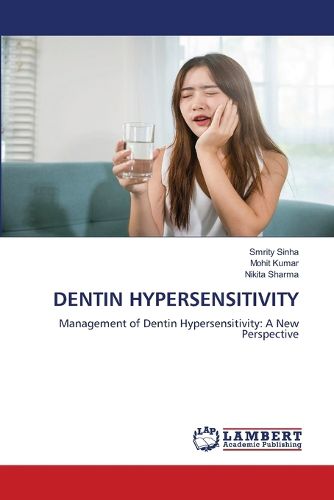Readings Newsletter
Become a Readings Member to make your shopping experience even easier.
Sign in or sign up for free!
You’re not far away from qualifying for FREE standard shipping within Australia
You’ve qualified for FREE standard shipping within Australia
The cart is loading…






Dentin hypersensitivity, often called sensitive teeth, is a prevalent dental issue characterized by sharp, transient pain due to exposed dentin responding to thermal, tactile, osmotic, or chemical stimuli. This condition affects many people, impacting their quality of life by limiting dietary choices and causing discomfort during oral hygiene practices.Pain from dentin hypersensitivity typically arises when the protective enamel is worn away or when gum recession exposes the underlying dentin and its microscopic tubules, which connect directly to nerve endings.Contributing factors include aggressive tooth brushing, periodontal disease, acidic dietary intake, and certain dental procedures. Managing this condition effectively involves a combination of preventive measures, such as proper oral hygiene and dietary modifications, along with treatments aimed at desensitizing the nerves or sealing the exposed tubules.Ongoing dental research continues to yield new insights and treatment options for dentin hypersensitivity, promising improved patient outcomes and enhanced quality of life.
$9.00 standard shipping within Australia
FREE standard shipping within Australia for orders over $100.00
Express & International shipping calculated at checkout
Dentin hypersensitivity, often called sensitive teeth, is a prevalent dental issue characterized by sharp, transient pain due to exposed dentin responding to thermal, tactile, osmotic, or chemical stimuli. This condition affects many people, impacting their quality of life by limiting dietary choices and causing discomfort during oral hygiene practices.Pain from dentin hypersensitivity typically arises when the protective enamel is worn away or when gum recession exposes the underlying dentin and its microscopic tubules, which connect directly to nerve endings.Contributing factors include aggressive tooth brushing, periodontal disease, acidic dietary intake, and certain dental procedures. Managing this condition effectively involves a combination of preventive measures, such as proper oral hygiene and dietary modifications, along with treatments aimed at desensitizing the nerves or sealing the exposed tubules.Ongoing dental research continues to yield new insights and treatment options for dentin hypersensitivity, promising improved patient outcomes and enhanced quality of life.